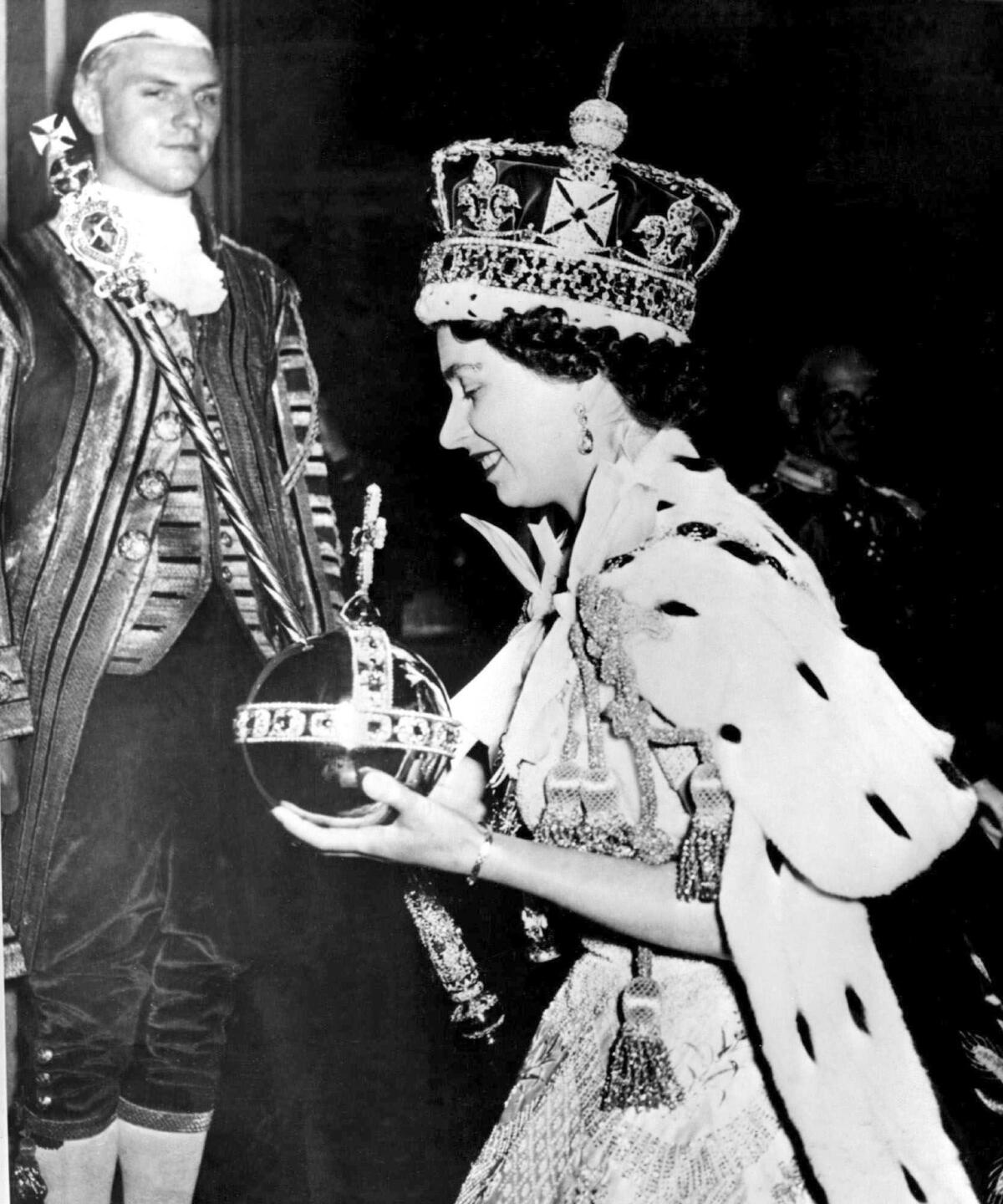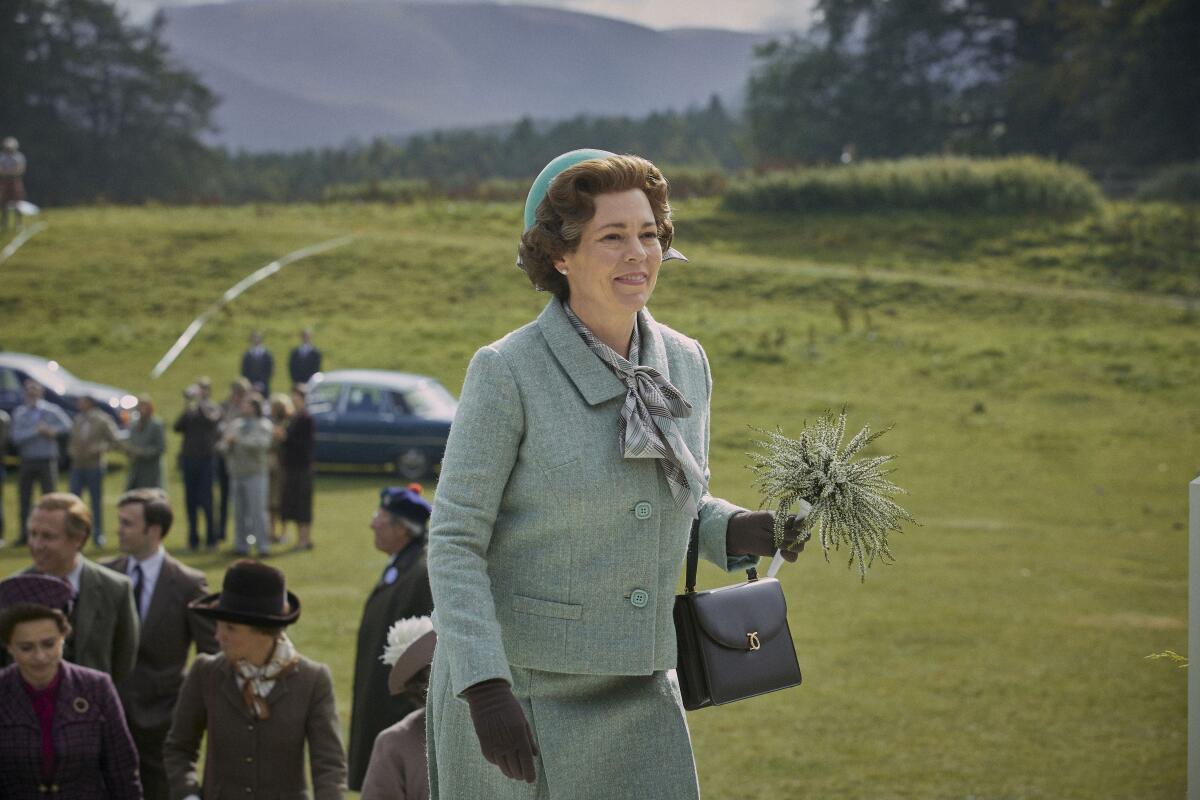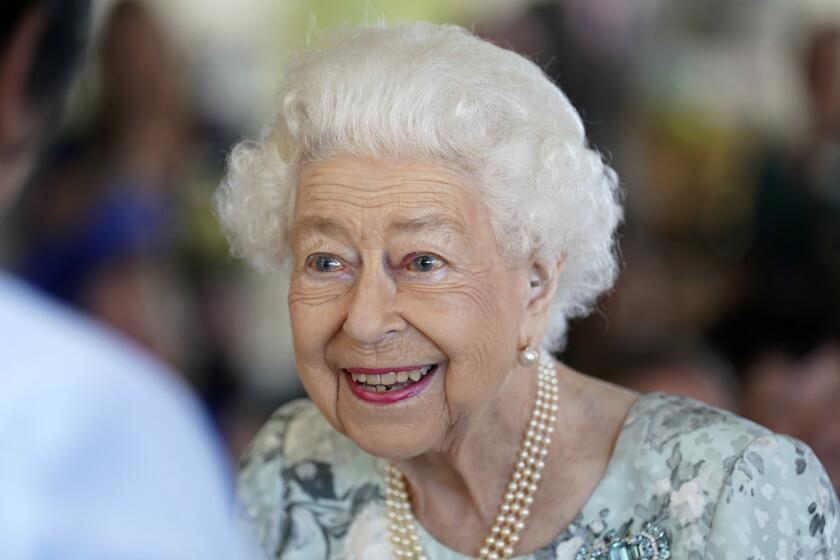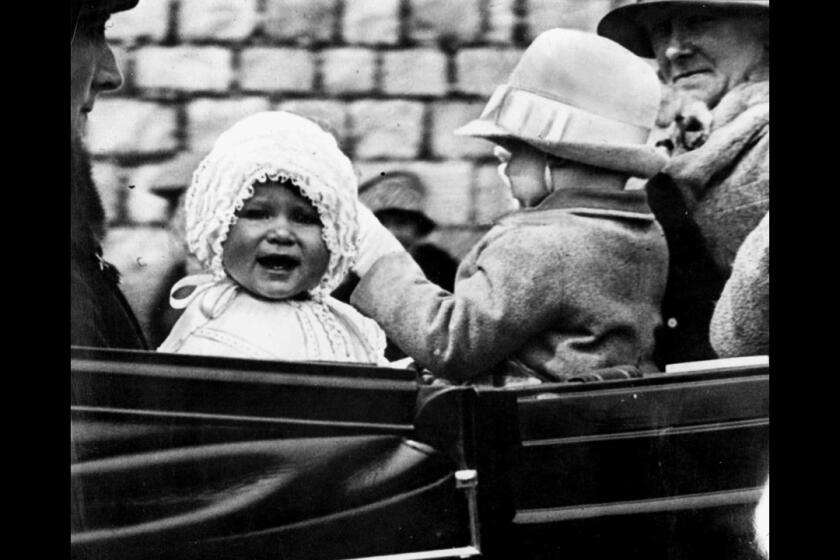For Americans, Queen Elizabeth II was the central character in the world’s longest running soap opera

My mother often shared two memories of her experience as a young woman during World War II: Her grandmother, an Irish woman with memories of hunger and fear under British rule, cheering the Blitz, to her family’s horror; and the impressive sight of the royal family remaining in London even as bombs dropped on Buckingham Palace. Like millions of others, my mother saw young Princess Elizabeth, who later volunteered as a military truck driver and auto mechanic, as especially heroic.
Queen Elizabeth II, who died Thursday at age 96, would live at the center of such complicated and often oppositional mythology for decades to come.
As has been said many times over, we look to the royal family for the kind of jewel-encrusted, gilded coach-chauffeured institutional ritual that this country, by choice and definition, does not have.
But Queen Elizabeth II enthralled us at an even more basic level. For Americans, who experienced her at a physical and emotional distance, she was an almost mythological figure, the most enduring main character in the world’s longest-running soap opera.
Over the years, that character has been cast in many lights: fairy tale princess, colonial despot, self-sacrificing monarch, money-sucking figurehead, under-appreciated working woman, unfeeling mother-in-law.
Queen Elizabeth II’s 70-year reign was so long that most of Britain’s 68 million people have known no other sovereign.
Though she was queen for longer than most of us have been alive, Elizabeth usually entered the modern American conversation through either celebration — weddings, jubilees — or scandal. The marriage between Prince Charles and Diana Spencer renewed American interest in the British monarchy — and when that marriage ended in scandal, revealing Diana’s deep unhappiness, many blamed, and continue to blame, the queen. After Diana died, Elizabeth’s days-long silence reinforced the belief that she cared little for the People’s Princess, that indeed her coldness had contributed to Diana’s tragic fate.
Others believed it was the queen who had been mistreated. As screenwriter Peter Morgan explored in “The Queen” and, more recently, Seasons 3 and 4 of “The Crown,” one of Elizabeth’s greatest talents was her ability to remain both iconic and enigmatic. Her every action was open to interpretation because, as monarch, she refused to respond definitively to question or criticism.
There may be no other person who lived in the modern public spotlight for so long and still remained, essentially, a cipher, a well-known figure not really known at all.
Which is one reason “The Crown” has been as big a hit in the United States as in the United Kingdom. While royalists and others pressured Netflix to attach an absurdly unnecessary disclaimer that the series is a work of fiction, audiences understood that it represents exactly what Elizabeth II was able to do so successfully: occupy a near-magical crossroads between real and make-believe.

Nineteenth century political writer Walter Bagehot argued that the unwritten British constitution relied on two kinds of institutions: the efficient and the dignified. The efficient, including the House of Commons, did the work of government while the dignified, the monarchy, maintained the nation’s honor and to a lesser extent its narrative.
Elizabeth’s understanding of Bagehot’s definition occupies an entire episode of “The Crown,” but her grappling with the larger concept fuels the entire series. So do the inherent contradictions in her life that have continued to fascinate Americans for generations. Like her father before her, she was thrust into a job she did not want long before she felt ready. She lived in a fancy palace but was chained to her desk and her schedule like the most overworked bureaucrat. She was the symbolic leader of her nation but unable to voice her own views on almost anything.
Queen Elizabeth’s death ended a remarkable 70-year rule — so long that most of Britain’s 68 million people have known no other sovereign.
She was the essence of privilege but also of duty; she may have had a splendid collection of hats and several castles at her disposal, but she never seemed to be living the high life. By all accounts, she was happiest tramping through the mud in Scotland, where she hung out in Balmoral but also drove her own Land Rover until fairly recently. And where she died.
More than anything, Queen Elizabeth II was an increasingly singular fixed point in a frantically changing universe. In recent years, she seemed to exist in a world apart from even the rest of the royal family. As allegations of sexual abuse left Prince Andrew stripped of his royal titles, as Prince Harry and Meghan Markle left the family they accused of racism, the queen’s longevity softened any criticism aimed at her through or by her progeny.
The royal family may be in tatters, and the fate of the monarchy has been questioned for years, but Elizabeth II was England’s beloved queen until the moment of her death.
Scandal and celebration, birth and death, war and peace, prosperity and decline: For almost a century, she watched her country and the world writhe and shift through the modern age while she stood fast, for good and ill, in a role she believed was appointed by God and was certainly rooted through centuries.
We knew this day would come, just as we know even the most epic story must end, that even the most resilient character will at last fall silent, but there is no avoiding the shock or filling the vacuum. Impossible as it may seem, the queen is dead, and we will never see another like her in this world.
What happens next will simply be an epilogue.
More to Read
The biggest entertainment stories
Get our big stories about Hollywood, film, television, music, arts, culture and more right in your inbox as soon as they publish.
You may occasionally receive promotional content from the Los Angeles Times.













